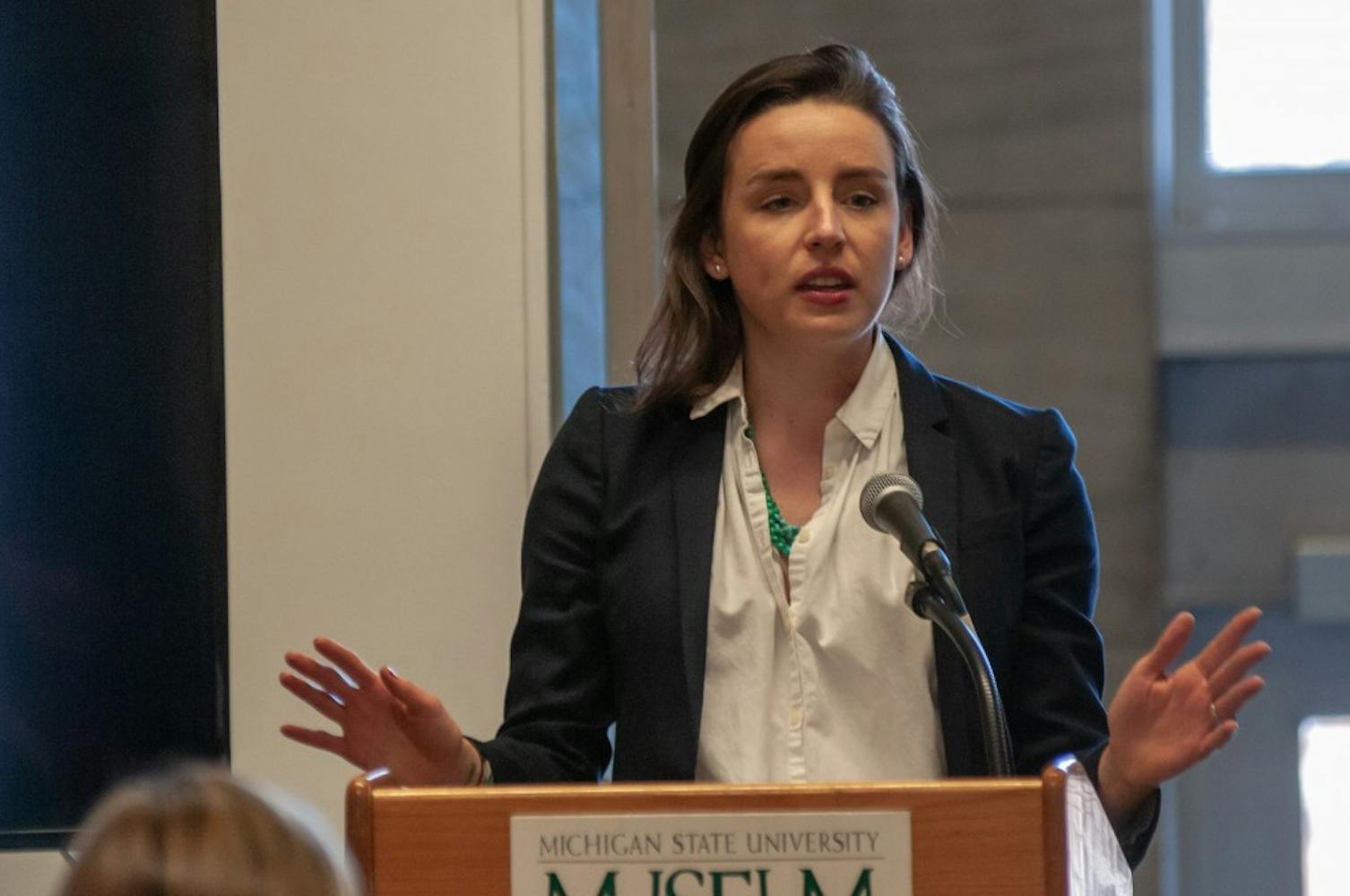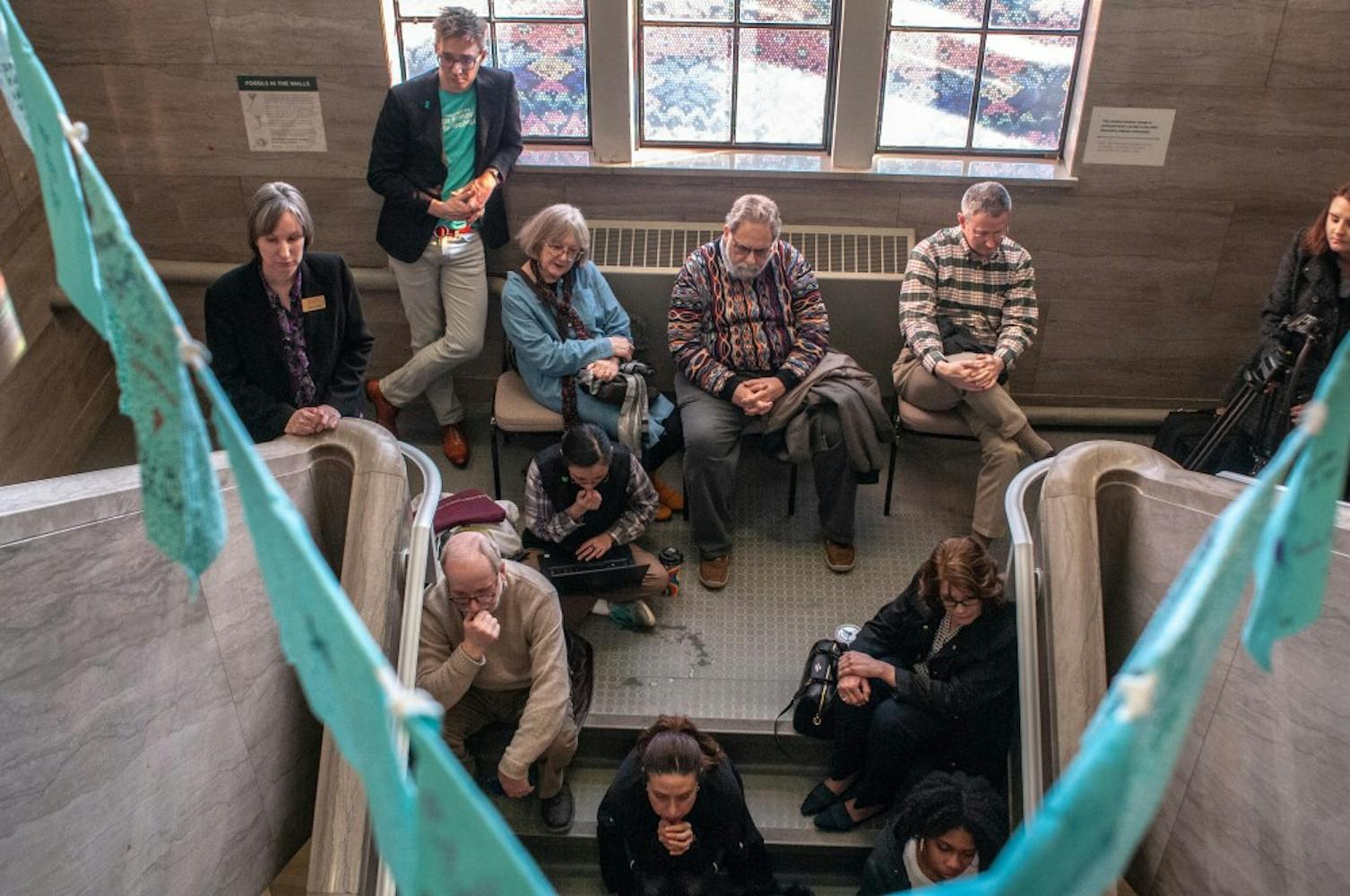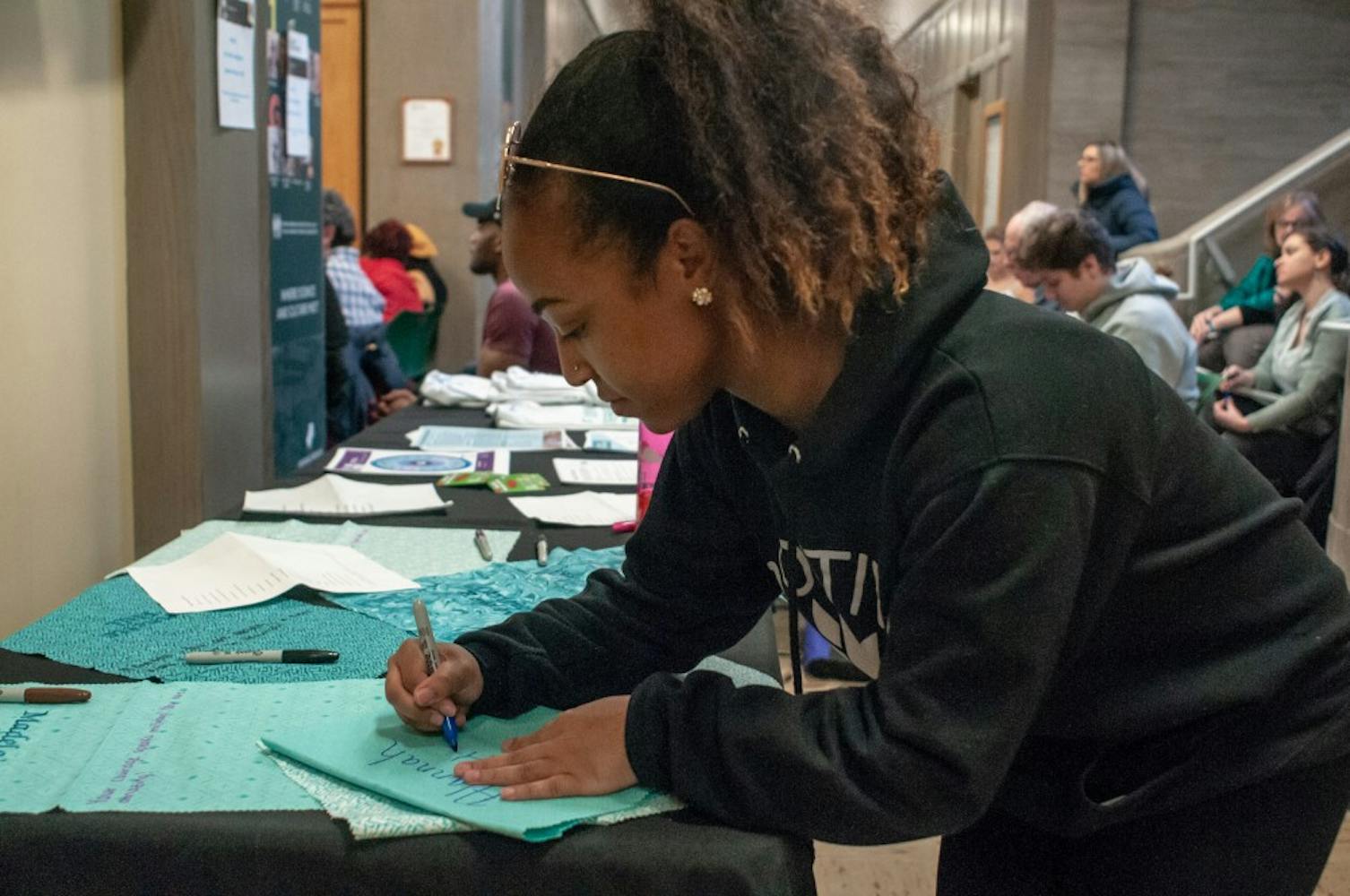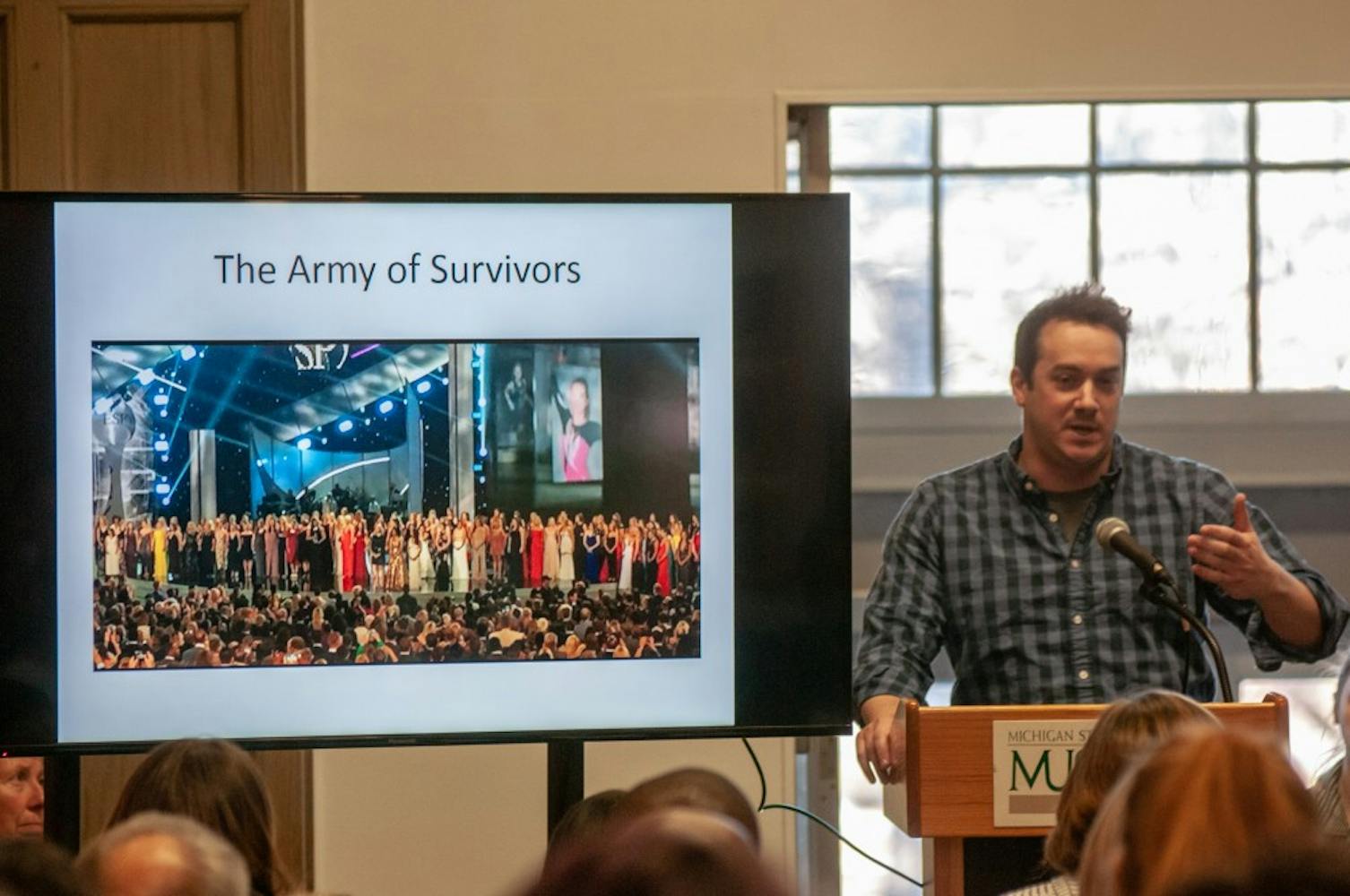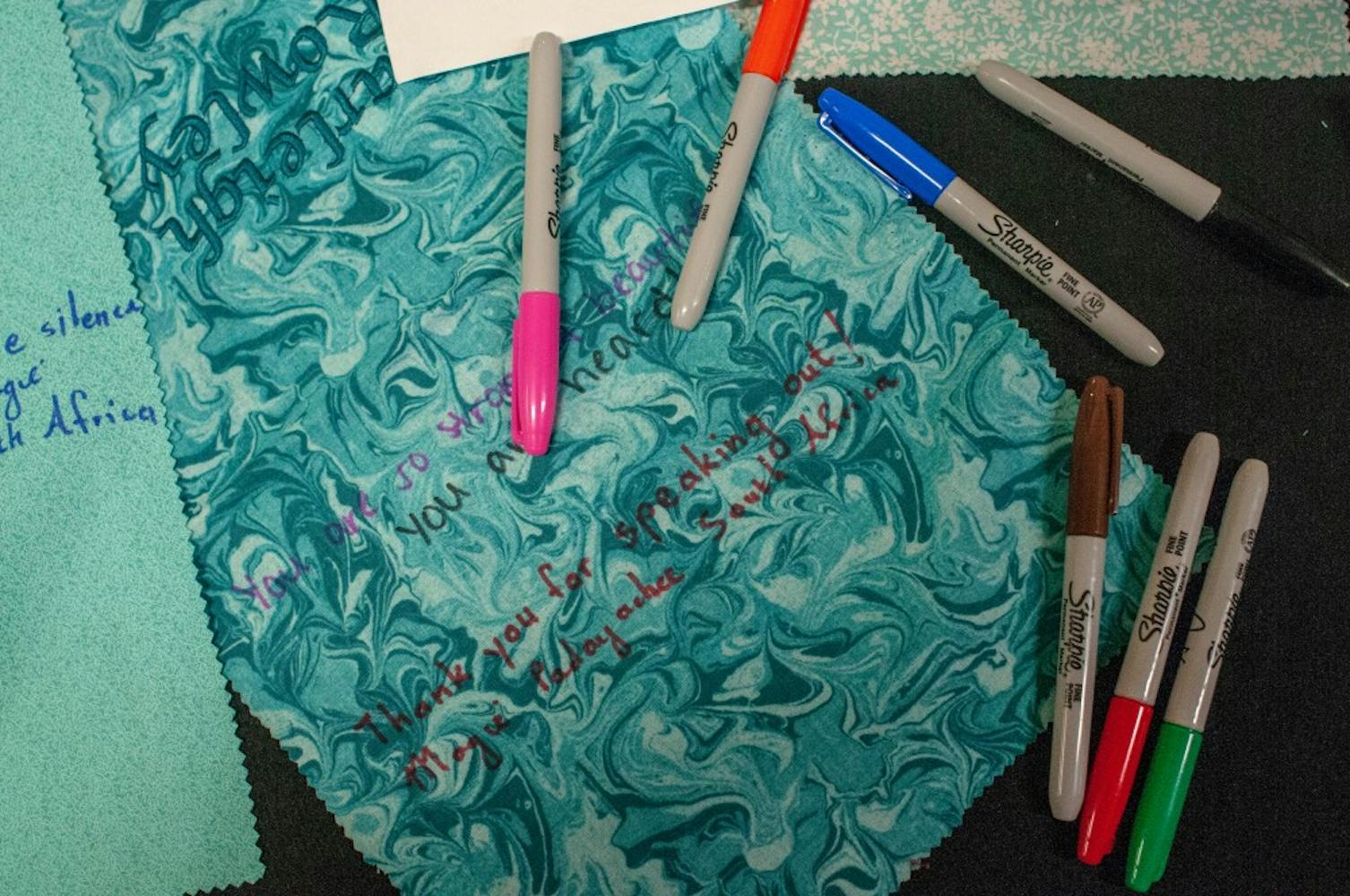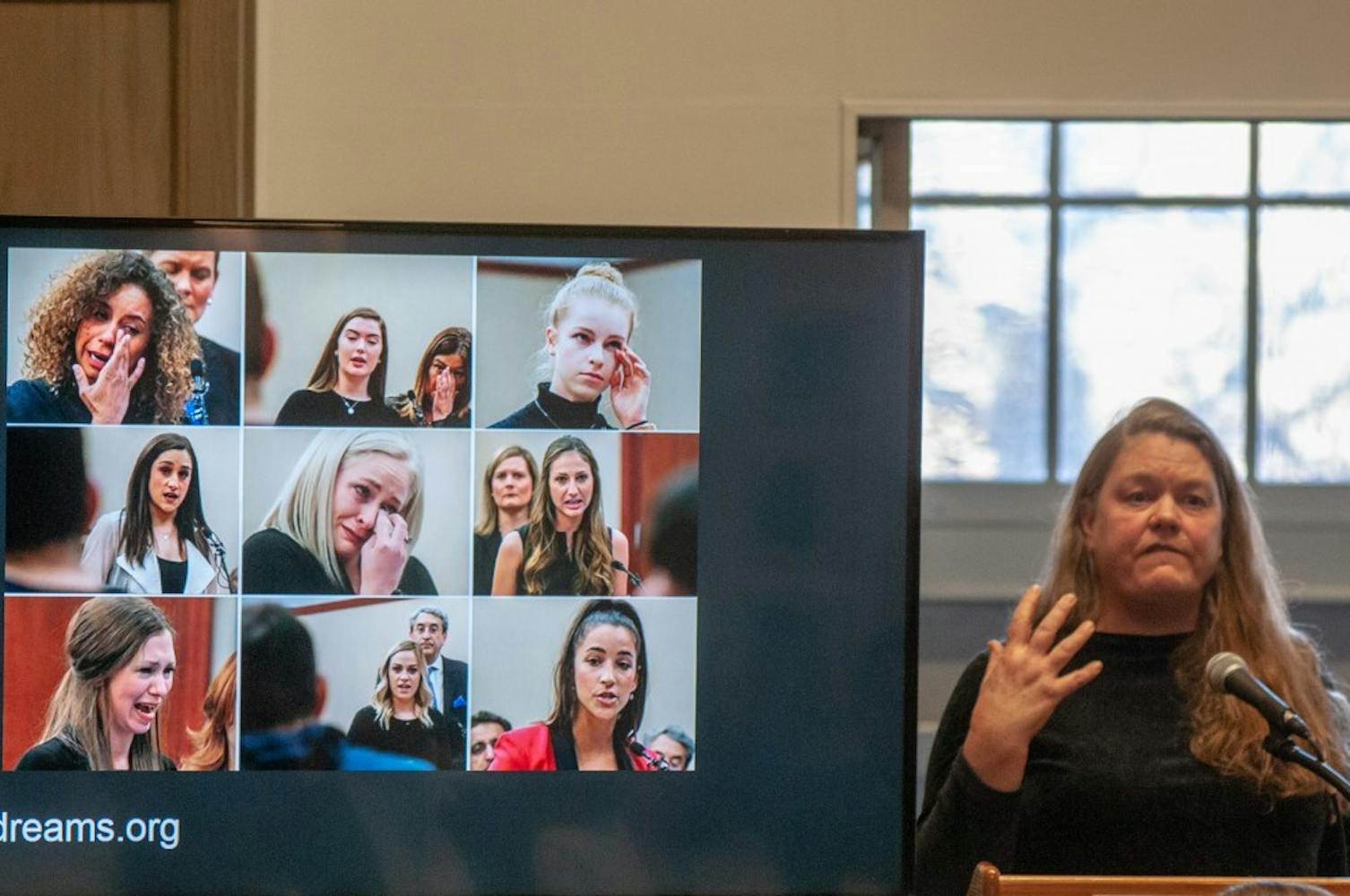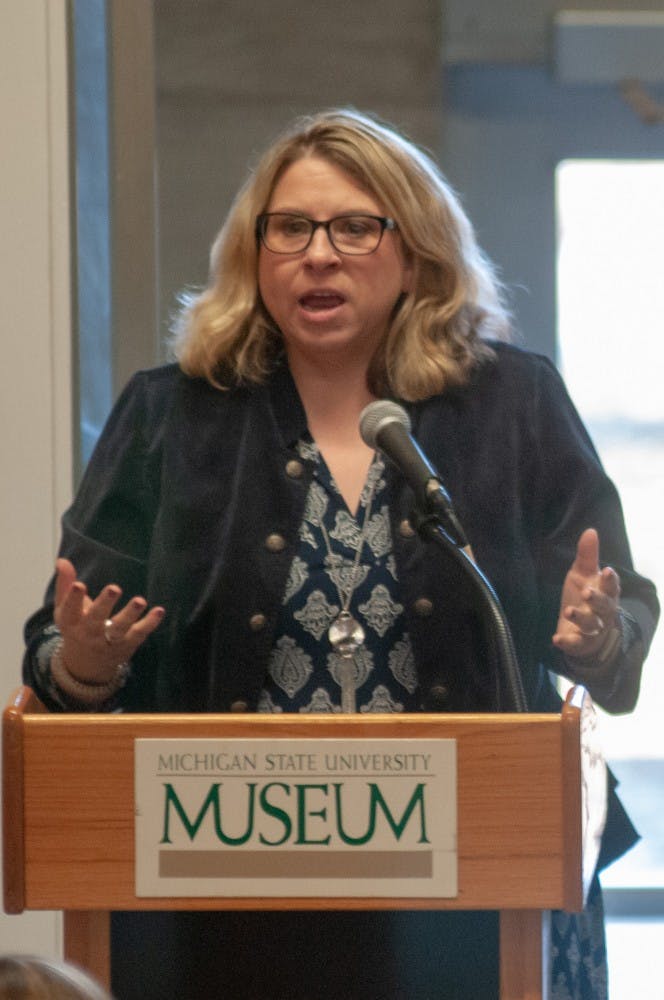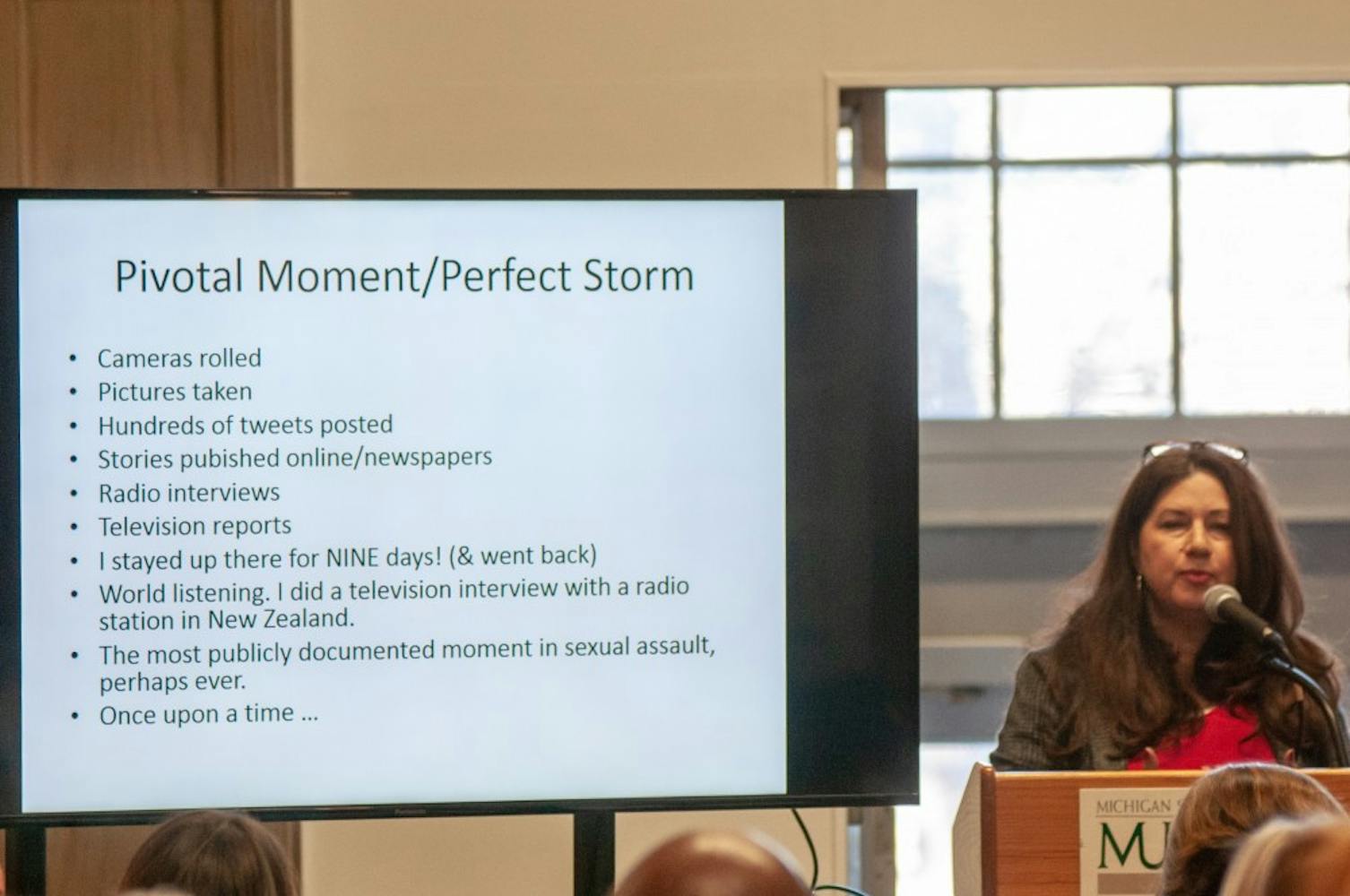A group of journalists and media professionals gathered at the Michigan State Museum Tuesday evening to discuss their experiences covering the Larry Nassar cases and their impact.
The panel discussion, titled "Covering the Crisis: Journalism and Sexual Violence," was the fourth of the "Sister Survivors Speak" series. The series consists of five panels leading up to the opening of the MSU Museum's "Finding our Voices: Sister Survivors Speak" exhibit, set to open April 16.
Among the panelists were Matt Mencarini from the Lansing State Journal, Kim Kozlowski from The Detroit News, Kate Wells from Michigan Radio and independent journalist Alexandra Ilitch. Others on the panel included WKAR Digital News Director Reginald Hardwick and MSU School of Journalism professors Judith Walgren and Joanne Gerstner. The panel was moderated by MSU School of Journalism professor Sue Carter.
Before she started "Believed", a podcast documenting the experiences of Nassar survivors, Wells said it seemed like a really bad idea at first. Nassar was in prison, the national media had moved on and it appeared MSU was starting to be held accountable, she said.
"What we were proposing doing in calling up these women and girls ... was saying 'Hey, can you once again stop living your normal, day to day busy lives?'" Wells said. "'Can you let us into your homes and your living rooms and you schools and unearth your pain all over again? But not just you, your kids, your parents, your spouses, and just trust us that we're going to do a good job with this, and we're not going to use you and it's going to be worth doing all of this again?"
"I will be honest, I'm still not sure why so many of them said yes."
One thing Wells learned from making "Believed" is survivors never stop reliving their experiences. Not being believed is also a psychological burden survivors carry with them, messing with their realities and their minds years later, she said.
"We really witnessed these women go back in time," Wells said. "I think if you listen to "Believed", you can hear them, even when they were just talking to us in their bedrooms underneath gymnastics posters, they relive it when they talk about it."
During her time, Kozlowski gave a slideshow presentation of developments in the Nassar cases and which stories she played a part in. Kozlowski discussed pitching her project on eight survivors who reported Nassar's abuse before he was prosecuted, shining a spotlight on individuals still employed by MSU.
Kozlowski said the victim impact statements during Nassar's Ingham County sentencing hearing marked a "seismic shift in time" and became a very important part of history. She said she feels honored to have a part in chronicling that.
"I really do believe that one day we're gonna look back in a history book that's gonna talk about this time here, about when all the survivors did come forward and talk about sexual assault," Kozlowski said.
When the Indianapolis Star published their first story on Nassar, Mencarini said he was put in touch with reporters there. Within days, police and prosecutors told the Lansing State Journal more people were coming forward. He said they thought the case would be a very high profile local criminal case they would cover "gavel to gavel," but when the Lansing State Journal found out about Amanda Thomashow's 2014 Title IX investigation, the focus shifted onto MSU as an institution.
Through a "slow churn" of about 150 FOIA requests and 350 stories over two years, the Lansing State Journal stayed on the story long before it received national attention, he said. The stories became not just about survivors, but about what the systems in place did or didn't do to prevent their abuse.
"That, I think, is what makes journalism more than just regurgitating someone's story, (it's) something that can have an impact and hold the powerful accountable," Mencarini said.
Gerstner, having spent a long career as either the only woman or one of two women at news organizations, said the culture of sports has worked against individuals coming forward, no matter who they are. The further you get professionally, the less incentive there is to say anything, she said.
The "maelstrom" of the Nassar cases has led Gerstner to teach her sports journalism students differently, she said.
"Don't just bleed green and white or maize and blue," Gerstner said. "Allow yourself to understand we have a responsibility to hold this institution accountable, meaning sports."
"I have seen the Karolyis scream at people, I have seen John Geddert humiliate Jordyn Wieber, I have seen things here at Michigan State," Gerstner said. "I also see Tom Izzo on the sideline screaming at players. I also see umpires getting into it with managers. This is our culture. This is sports."
Grace French, president of the Army of Survivors, said she believes her place on the panel was to provide her perspective as a survivor who's had her story told. She said she wanted to express her "wholehearted thankfulness" for those on the panel.
"They have been incredible allies for the last two and more years to survivors worldwide, and have shown us some of the impact the media makes on conversations we have as a nation," French said.
Support student media!
Please consider donating to The State News and help fund the future of journalism.
Discussion
Share and discuss “Journalists share experiences covering Nassar cases, sexual assault” on social media.
